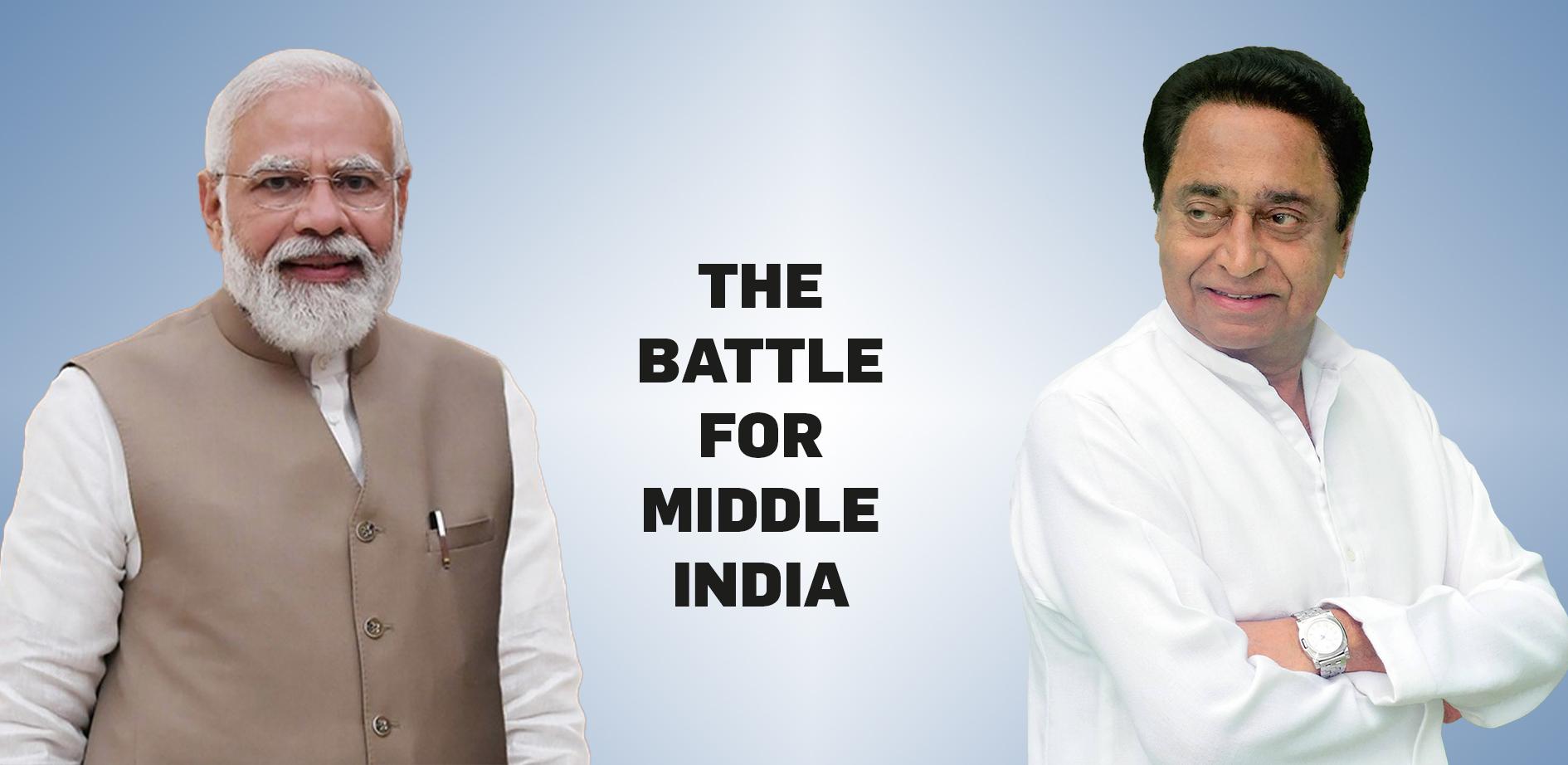The 2023 Madhya Pradesh elections project a peculiar image on the political landscape of the largest state in India, which makes it hard to distinguish the differences between the ruling BJP and the challenger Congress. If the Bharatiya Janata Party (BJP) is banking on its tried and tested electoral gambit of putting on display its hard Hindutva face to retain its key vote bank, which has paid the party handsomely in MP in the past, to beat the strong anti-incumbency sentiment, the Congress is countering it by flashing the “soft” Hindutva card, wherever necessary.
Similarly, both parties are trying to seduce voters by showering guarantees. Not too long back Prime Minister,Narendra Modi derisively dismissed the social welfare schemes that are being offered in opposition-ruled states as revdi (freebie) culture. If the BJP is hawking its bouquet of freebies as “Modi Ki Guarantee” (Modi’s assurances), the Congress is offering five key guarantees that the party’s chief ministerial face, Kamal Nath, promises to deliver, if voted into power.
In this scenario, the Rashtriya Swayamsevak Sangh (RSS), the ideological mother ship of communal politics, finds itself in a sweet spot, where it has nothing to lose in MP, even if the BJP is voted out of power after a 20-year reign.
Also, in the event of the BJP losing in MP, it should hardly be construed as a loss for Modi, despite the prime minister being the party’s face in the state elections. His popularity is likely to remain undiminished as the national leader with no alternative. That’s what the voices on the ground echo loud and clear.

























